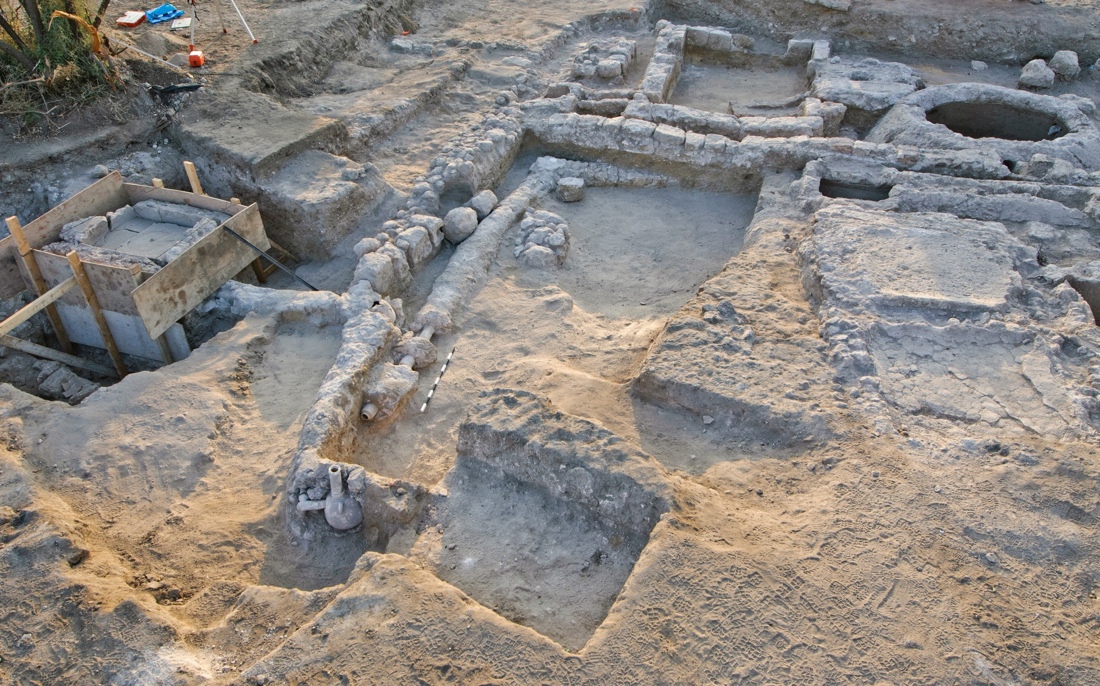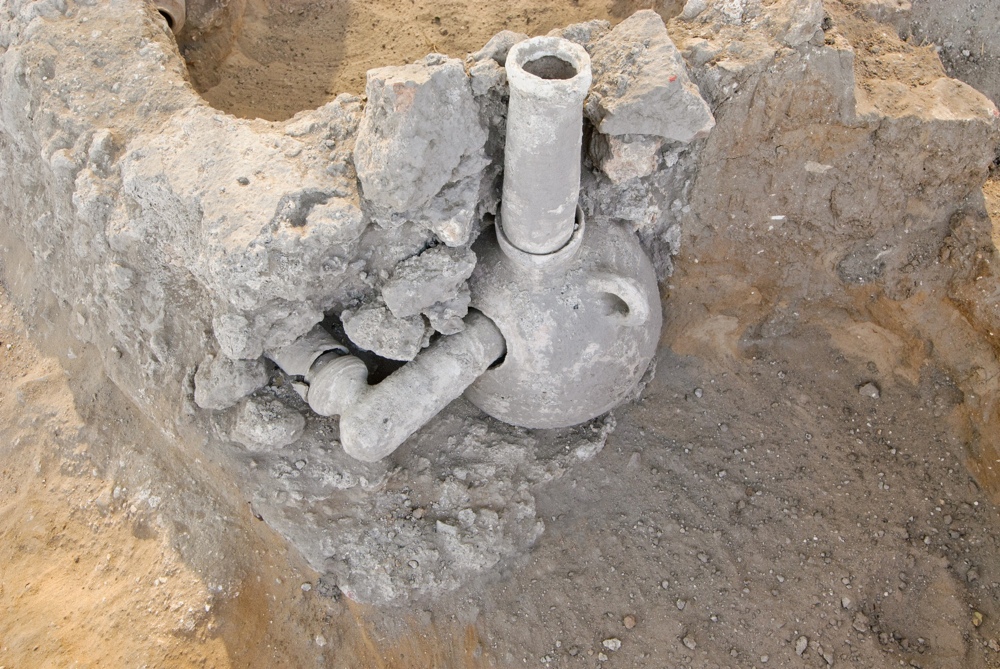Ancient Estate and Garden Fountain Unearthed in Israel

The remains of a wealthy estate, with a mosaic fountain in its garden, dating to between the late 10th and early 11th centuries have been unearthed in Ramla in central Israel.
The estate was discovered during excavations at a site where a bridge is slated for construction as part of the new Highway 44.
"It seems that a private building belonging to a wealthy family was located there and that the fountain was used for ornamentation," Hagit Torgë, excavation director on behalf of the Israel Antiquities Authority, said in a statement. "This is the first time that a fountain has been discovered outside the known, more affluent quarters of Old Ramla."
Fountains from the Fatimid period were mostly found around the center of the Old City of Ramla called White Mosque, Torgë added. [Photos: Roadside Dig Reveals 10,000-Year-Old House in Israel]
Researchers found two residential rooms within the estate along with a nearby fountain made of mosaic and covered with plaster and stone slabs; A network of pipes, some made of terra cotta and connected with stone jars, led to the fountain. Next to the estate, archaeologists also found a large cistern and a system of pipes and channels used to transport water.
Other discoveries at the site included oil lamps, parts of dolls made of bones and a baby rattle.
"This is the first time that the fountain's plumbing was discovered completely intact. The pipes of other fountains did not survive the earthquakes that struck the country in 1033 and 1068 CE," Torgë said in a statement. Ramla was founded in the eighth century by the ruler Suleiman Ibn 'Abd al-Malik. Its strategic location on the road from Cairo to Damascus and from Yafo to Jerusalem made Ramla an important economic center.
Get the world’s most fascinating discoveries delivered straight to your inbox.
The entire area seems to have been abandoned in the mid-11th century, likely in the wake of an earthquake, according to the IAA.
Once the excavation is complete, the fountain will be displayed in the city's Pool of Arches compound.
Due to Israel's long history, construction projects often yield archaeological discoveries. For example, a "cultic" temple and traces of a 10,000-year-old house were discovered at Eshtaol west of Jerusalem in preparation for the widening of a road. And during recent expansions of the main road connecting Jerusalem to Tel Aviv, called Highway 1, excavators found a carving of a phallus from the Stone Age, a ritual building from the First Temple era and animal figurines dating back 9,500 years.
Follow Jeanna Bryner on Twitter and Google+. Follow us @livescience, Facebook & Google+. Original article on LiveScience.
Jeanna Bryner is managing editor of Scientific American. Previously she was editor in chief of Live Science and, prior to that, an editor at Scholastic's Science World magazine. Bryner has an English degree from Salisbury University, a master's degree in biogeochemistry and environmental sciences from the University of Maryland and a graduate science journalism degree from New York University. She has worked as a biologist in Florida, where she monitored wetlands and did field surveys for endangered species, including the gorgeous Florida Scrub Jay. She also received an ocean sciences journalism fellowship from the Woods Hole Oceanographic Institution. She is a firm believer that science is for everyone and that just about everything can be viewed through the lens of science.



